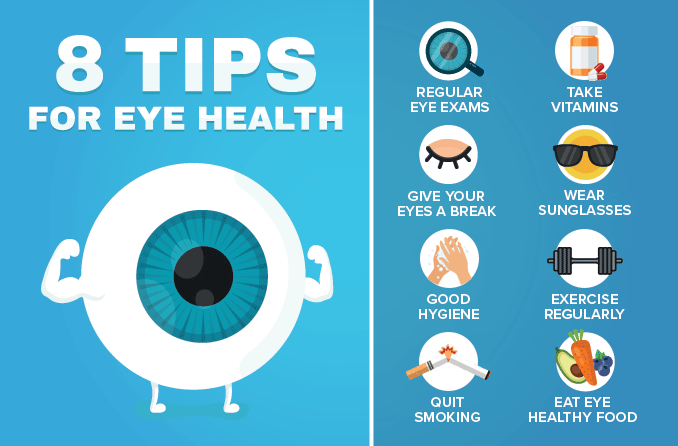Vision Gesundheit: Fostering Eye Health for a Brighter Future
Understanding Eye Health
Eye health is crucial for overall well-being, impacting daily activities and quality of life. Good vision allows us to navigate our environments, connect with others, and perform tasks efficiently. To maintain optimal eye health, it’s important to prioritize regular eye exams, a nutritious diet, and protective measures against environmental stressors. Implementing these practices can help promote **healthy vision** throughout one’s life.
The Importance of Regular Eye Exams
Regular eye exams are instrumental in assessing eye health and detecting potential issues early on. Many eye conditions, such as glaucoma, diabetic retinopathy, and age-related macular degeneration, may not present symptoms until significant damage has occurred. Attending annual or bi-annual eye exams enables eye care professionals to identify these issues, allowing for prompter treatment and better management of vision-related problems. Moreover, these appointments help update prescriptions to ensure that vision is always at its best.

Nutrition and Eye Health
Your diet plays a vital role in maintaining **vision health**. Nutrients such as omega-3 fatty acids, lutein, zeaxanthin, vitamin C, and vitamin E are essential for eye health. Incorporating foods such as leafy greens, fatty fish, nuts, and citrus fruits can enhance your **eye care routine**. For instance, omega-3s promote retinal health, while lutein and zeaxanthin are known to filter harmful blue light. Considering a balanced diet rich in these nutrients will help ensure your eyes continue to function optimally as you age.
Preventative Measures for Eye Care
Taking proactive steps towards eye care can significantly reduce the risk of vision problems later in life. Simple practices like wearing sunglasses outdoors to protect against UV rays, using proper lighting while reading or working, and taking regular breaks from screens can safeguard your vision health. It’s crucial to adopt these preventative strategies to ensure that your eyes remain as healthy as possible amid the challenging environments we navigate daily.
Protecting Your Eyes from Blue Light
In today’s digital age, blue light exposure is ever-present due to prolonged use of computers, smartphones, and TVs. This exposure can lead to digital eye strain, resulting in symptoms such as headaches and blurred vision. To combat these effects, consider utilizing blue light filters on your devices and scheduling regular breaks during screen time. The 20-20-20 rule is a practical method: every 20 minutes, look at something 20 feet away for 20 seconds. Incorporating these habits can help maintain your **visual comfort** and prevent damage.

Maintaining Proper Hydration
Hydration is often overlooked in relation to eye health, yet it is essential for preserving tear production and overall **eye comfort**. Dry eyes can lead to discomfort, vision problems, and even increase the risk of eye infections. Drinking adequate water each day can help ensure that your body maintains appropriate moisture levels in your eyes. Aim for at least 8 glasses a day, and consider using a humidifier in dry conditions to further support eye hydration and comfort.
Emotional and Mental Health’s Influence on Vision
Interestingly, emotional and mental health factors can also impact eye health. Stress, anxiety, and depression may contribute to fatigue and strain, potentially affecting visual acuity and comfort. Engaging in activities that promote relaxation, such as meditation or spending time in nature, can alleviate stress and enhance your overall sense of well-being—ultimately benefiting your vision. Thus, incorporating mental health practices into your life can create a positive cycle, supporting not just your vision but your life quality as well.
Yoga and Eye Exercises
Incorporating specific exercises and yoga practices can also contribute significantly to eye health. Eye exercises focus on relaxing the eye muscles and improving circulation. Common exercises include palming, focusing on distant objects, and blinking regularly when staring at screens for prolonged periods. Just a few minutes a day can reduce eye strain and enhance your visual comfort. Also, yoga poses promote relaxation and overall body wellness, aiding in reducing stress and fatigue that can adversely affect eyesight.
Seeking Professional Help
If you experience any signs of visual disruption, such as blurriness or floating objects, it is vital to seek professional care immediately. Optometrists can tailor clean routines to your needs while also offering specific programs and education to enhance and preserve your vision. By being proactive and seeking assistance when necessary, you are taking essential steps in valuing your vision health.
Key Takeaways
- Prioritize regular eye exams to catch vision issues early.
- A balanced diet rich in essential nutrients supports optimal eye health.
- Employ preventative measures like blue light protection and hydration.
- Pay attention to the emotional factors affecting eye health.
- Consider professional assistance for tailored **eye care strategies**.
FAQ
1. How often should I get my eyes examined?
Adults should have comprehensive eye exams every one to two years, depending on any vision issues or underlying health conditions. Regular assessments can catch problems early, ensuring effective management.
2. What nutrients are essential for maintaining eye health?
Nutrients such as omega-3 fatty acids, lutein, zeaxanthin, vitamins C and E are crucial for eye health. Incorporating foods like leafy greens, fatty fish, and citrus fruits into your diet can support optimal vision.
3. How do stress and anxiety impact vision health?
Stress and anxiety can lead to issues such as eye strain and fatigue, potentially affecting visual clarity. Incorporating stress-relief practices like meditation can help mitigate these impacts.
4. Can screen time damage my eyes?
Prolonged screen time can lead to digital eye strain, which presents symptoms such as dryness, fatigue, and blurred vision. Utilizing the 20-20-20 rule and taking regular breaks can protect against this strain.
5. What are some effective eye exercises?
Eye exercises such as palming, focusing on distant objects, and following a clockwise and counter-clockwise motion with your gaze can relax eye muscles and improve comfort. Incorporating these into your routine can be highly beneficial.
Implementing these tips and understanding the importance of vision care will foster healthier eyes. Make eye health a priority for your well-being!
